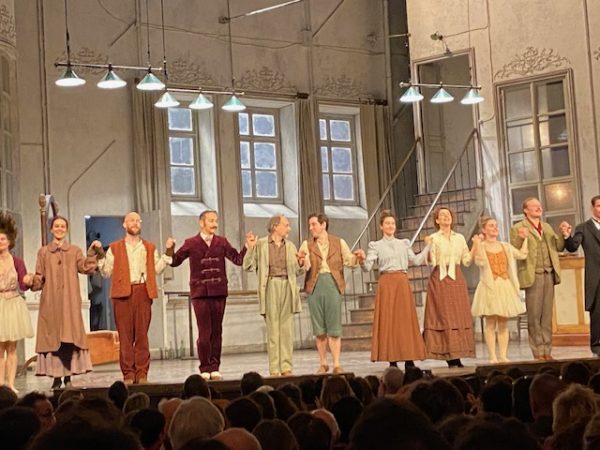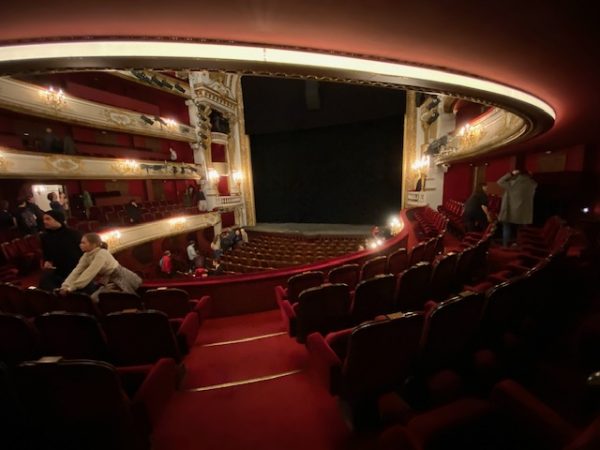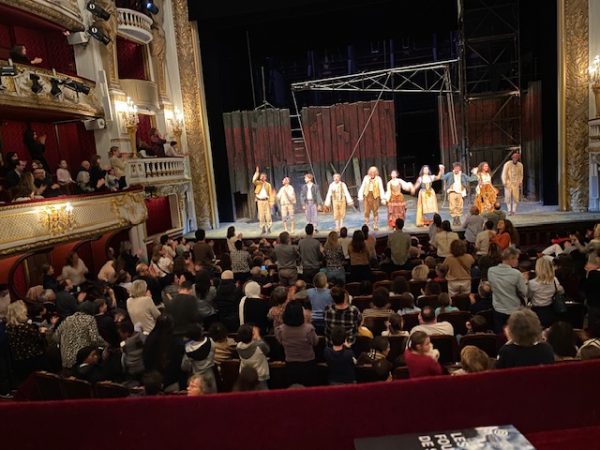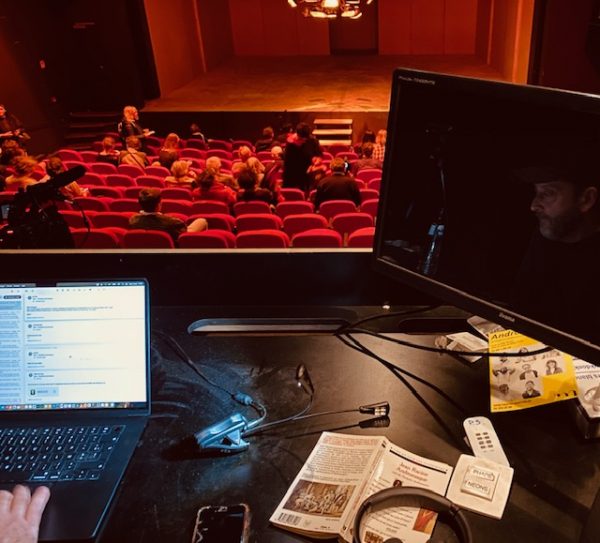Most of us know very little about what happens in a dancing school. This has intrigued artists for centuries. The Paris-based “Comédie francaise” has chosen the “L’école de danse” de Carlo Goldini as one of the pieces to enter its repertoire in 2025. Whereas modern dance celebrates the freedom of motion of humans, the early 18th century theatre piece by Goldini is a comedy in which the tyrannic ballet teacher attempts relentlessly to maximize profits based on the talents of the dancers either by placing them at a high reputation theaters or marrying them. Of course, each time a sizable commission has to be paid to the dealer of talents. Sounds familiar to what happens in other professions today, doesn’t it?
The borders between “dealing with love” and “dealing in love” become blurred in this comedy and Goldini shows his talent to play out intrigues on stage in an admirable way. It is a pleasure to experience the fun on stage with the manifold intrigues. (Image: actors of Comédie francaise in L’école de danse 2025-12).








